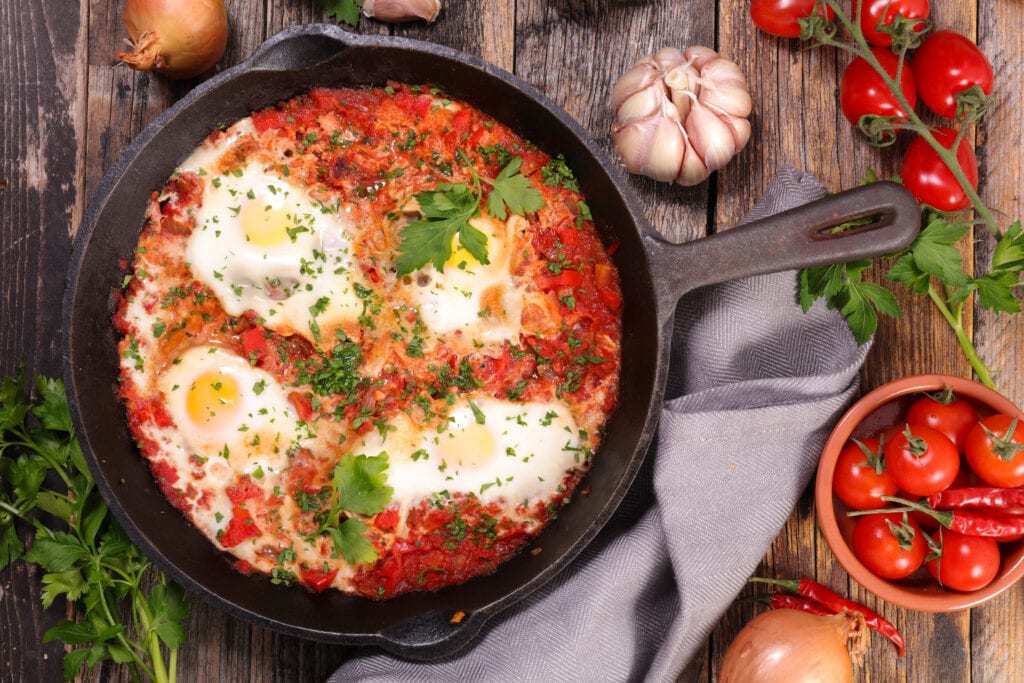
Eggs – Nutrition, Benefits, and Risks
Hard-boiled, fried, or mixed with vegetables to form the perfect omelet, the eggs are an essential part of our daily breakfast. Well, the eggs often get coupled with toasted bread and a cup of warm tea. The trio is surely irresistible!
Apart from the taste, the eggs add a great deal of nutritional value to our breakfast. Let’s explore the eggs thoroughly!
Nutritional Breakdown
An egg, weighing 44g, provides way more nutrition than expected. Here is a nutritional breakdown of an egg:
- Energy: 62.5calories
- Fats: 4.2g
- Protein: 5.5g
- Magnesium: 5.3mg
- Calcium: 24.6mg
- Iron:0.8mg
- Potassium: 60.3mg
- Cholesterol: 162mg
- Phosphorous: 80.3mg
- Sodium: 189mg
- Considerable amounts of vitamins and minerals
One can see that an egg does supply the human body with lots of essential nutrients, but you can make it more healthy by adding in some vegetables or herbs. Often, a few bread slices or some mashed sweet potato can be sufficient to increase the nutritional value.

6-Benefits of Eggs
Although the nutrition content and the effectiveness of benefits will vary with the type of egg, here are the most common benefits of eggs.
1. Makes muscles stronger
The egg offers complete proteins. As our body’s building block is protein, the eggs boost our cells and strengthen our muscles. With sufficient proteins, the damaged cells can get repaired or replaced quickly. Also, one will get a boost of energy from these proteins.
2. Help lose weight
When one eats eggs, a sense of fullness takes over. According to several studies, eating eggs causes a sense of satisfaction that automatically reduces our intake of calories. Hence, helping us lose weight without depriving our body of essential nutrients.
3. Reduces heart problems
An egg has 4.2g of fats, and a majority is unsaturated fats, which are healthy for the human body. Also, the cholesterol in an egg is the good one called high-density lipoprotein (HDL). The good cholesterol reduces the risk of heart strokes and diseases.
4. Makes skin healthier
The presence of important vitamins and minerals boosts skin health. It prevents the break down of skin tissues and helps maintain a fresher as well as better skin condition.
5. Sharpens your brain
It fuels our body with omega-3 fatty acids, which is essential for cranial function. Also, eggs contain vitamin D and choline that improves the nervous system. As a result, brain health becomes better.
6. Improves eye health
The eggs also offer two significant antioxidants called Lutein and Zeaxanthin. According to many studies, the antioxidants function to keep the eyes healthy. They prevent the occurrence of age-related degenerative problems and cataracts. Although leafy vegetables like Kale also are dense in these antioxidants, daily consuming eggs can ensure a constant supply.
Are there any side effects?
Although there is no major harm caused by eggs, however, consumption of raw or uncooked eggs can lead to health problems. It is because bacteria, as well as other micro-organisms, enter the raw eggs through the pores in the shell. Hence, it can lead to diseases and health issues.
Also, eggs may cause adverse reactions if the consumer has an allergy. It is very rare, but some people are sensitive to eggs and may experience side effects. These effects may include dizziness, fatigue, headaches, and indigestion. People with an egg allergy must avoid all foods with even egg traces. They must check the ingredients thoroughly before eating.

What’s the best way of cooking?
One can cook eggs in a lot of different ways. The most common ways of cooking eggs include:
- Hard-boiled Egg– The eggs get boiled in a pot of hot water. After 5-6minutes, you’ll have to take out the eggs and remove their shells. The length of time will vary depending on the yolk firmness you want.
- Baked Egg– The egg gets baked in an oven until set.
- Scrambled Eggs– First, the egg gets beaten in a bowl and then fried in a hot pan. The stirring helps to break down the egg into smaller bits.
- Fried Egg– It is the most simple form. Crack the egg in a hot pan. Fry with the yolk side up to keep it runny. Fry both sides if you want the yolk firm.
- Poached Egg– The egg gets cracked into simmering water.
Other than that, the egg gets cooked in a lot of different ways, including omelet, Shakshuka, muffins, and salads. There is no definite best way of cooking the egg, but try to use good quality oil while frying and try to add a few vegetables. These tips can ensure that the egg you cook is healthy.
Leave your comment
You must be logged in to post a comment.